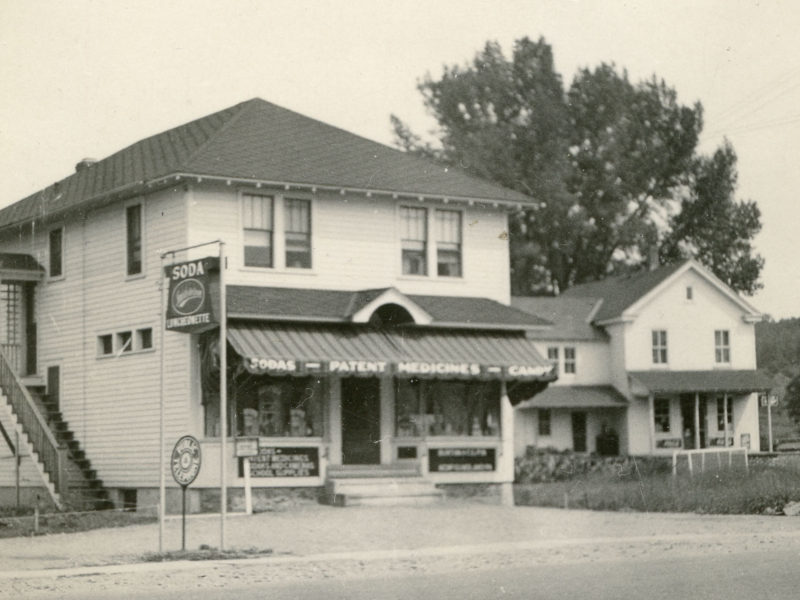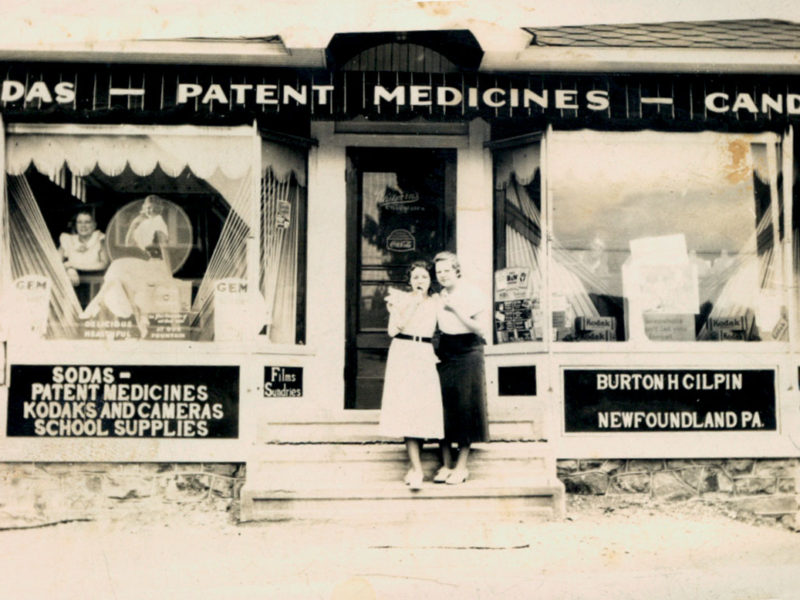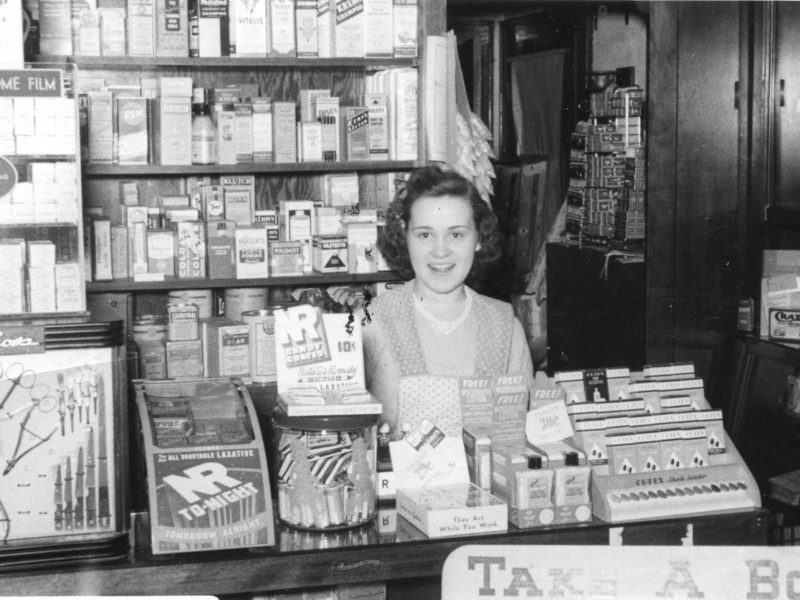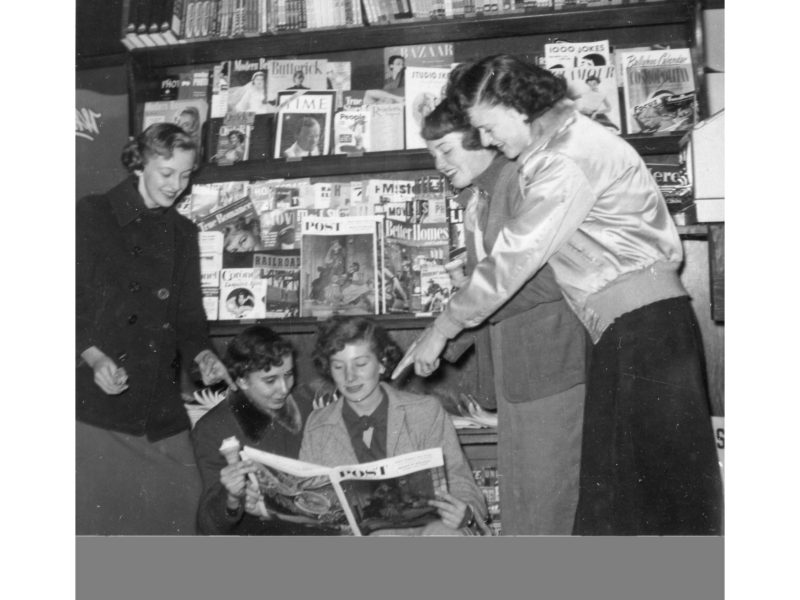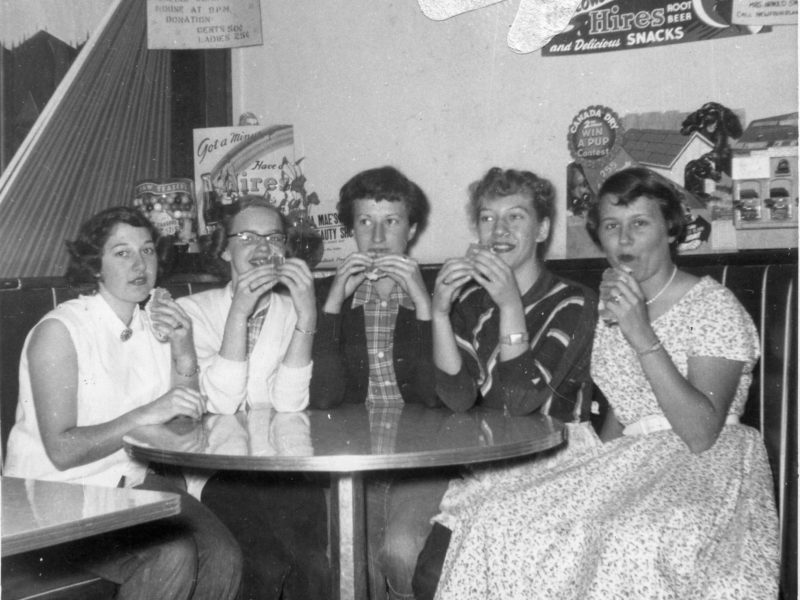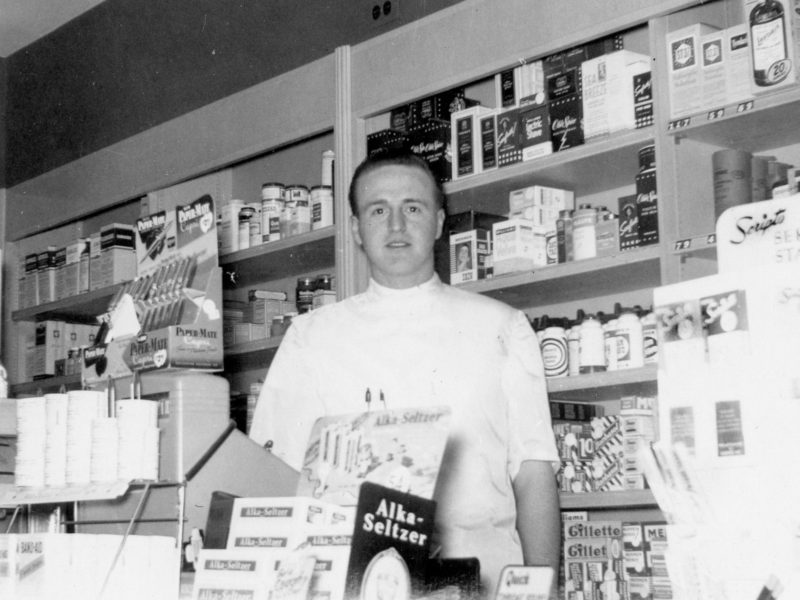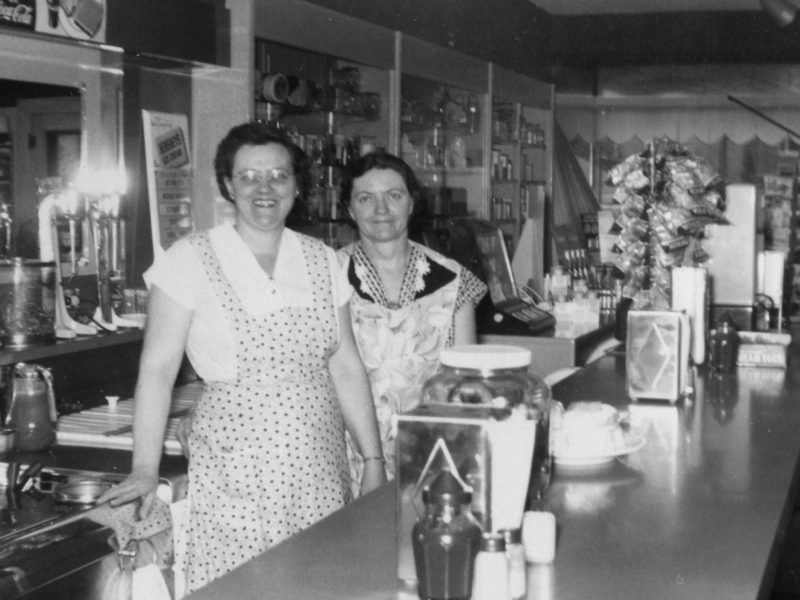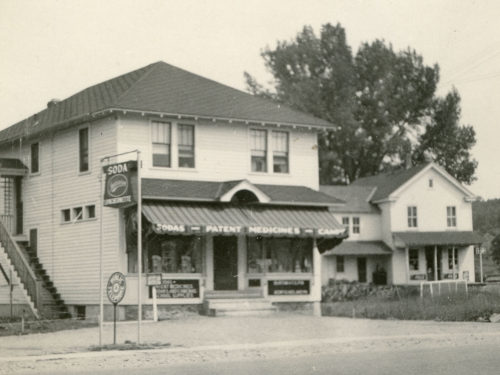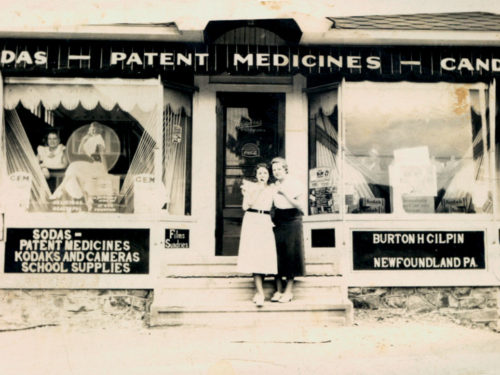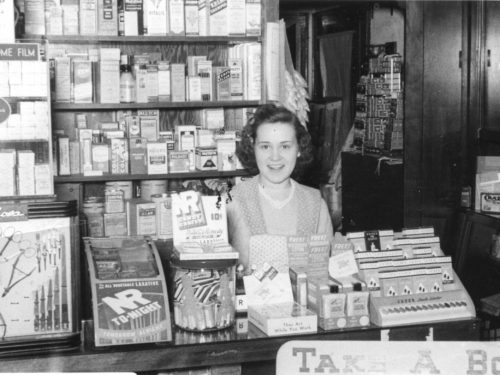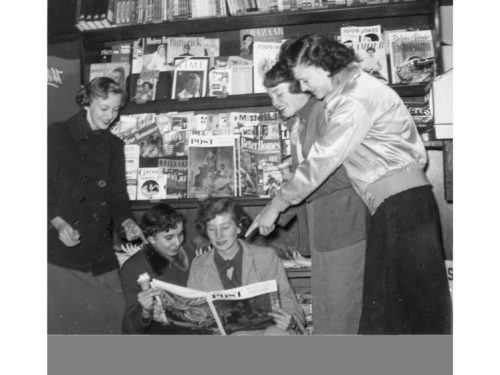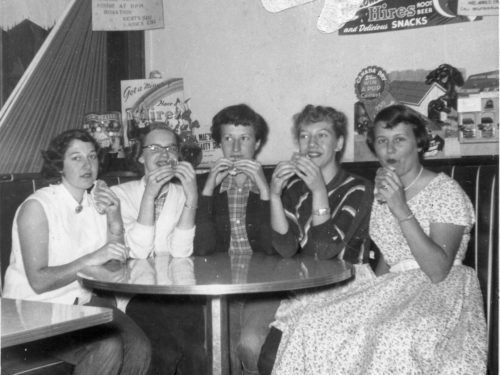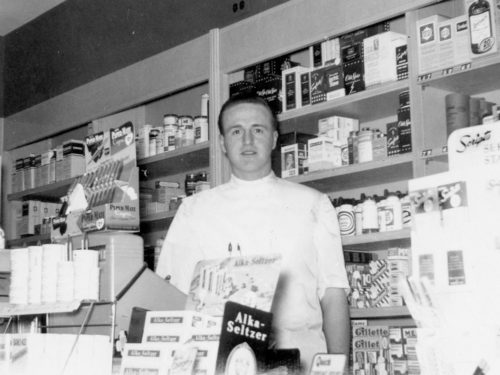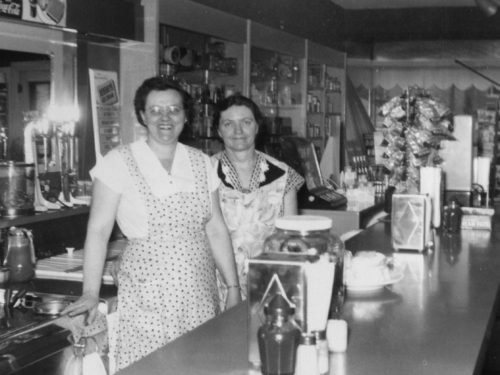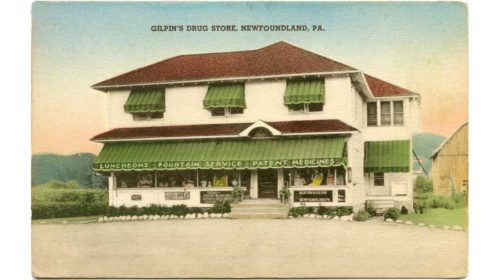Gilpin’s Drugstore opened on Main Street in Newfoundland in 1933, at the height of the Great Depression. Although the main thoroughfare through town was still a dirt road, the automobile had overtaken the last remaining horse and oxen-drawn conveyances. The store’s location near the village crossroads—with the church on one side and the bank on the other and the school across the street—assured its place as the hub of the Greene-Dreher community for decades to come.
Burton and Roma Gilpin built the drugstore with the help of their families and the support of the community. Burton Harvey Gilpin had grown up in South Sterling, the son of James M. and Elizabeth (Simon) Gilpin, proprietors of the Gilpin & Barnes General Store. He met and married Roma Tucker from New Hampshire while attending the Philadelphia College of Pharmacy. Burton was working as a pharmacist in Bethlehem when the Depression hit, and the young family decided to return home to South Sterling. Their second son was born there in 1930, followed by a daughter in 1932. As soon as they could afford it, Burton and Roma bought property in Newfoundland and built the town’s first drugstore. Marvin Woltjen supplied the lumber and Bill Beehn built it, all with a promise to be paid as soon as times improved. The spacious two-story building also served as their family residence, with living quarters in the back and bedrooms on the second floor. Four months after the drugstore opened Burton tragically died at the age of 34, leaving Roma with three young children, five-year-old Burton, three-year-old Willis, called Bill, and their one-year-old baby daughter, Barbara.
“Mother built an addition and put in a soda fountain. That’s how she kept the store going. Grandma Flora [Tucker] came to live with us and helped take care of us kids.” —Barbara Gilpin
Everyone passed through its doors—from the farmers who came in bright and early for their paper and a cup of coffee, to the before-work breakfast clubbers and the everyday lunch crowd, to the evening arrivals of team or band members after school events. In winter, the drugstore stayed open late on nights when the basketball team and cheerleaders had away games. Parents could wait inside for the bus to drop the team off at school, usually between 10:00 and 11:00, or sometimes later, depending on the distance and the weather. The kids would walk over to the drugstore and either meet their parents or use the pay phone inside to call home. The store didn’t close until the last student had waved good-bye and hurried out the door to jump into the waiting automobile
“Mother opened the store at 6:00 am because that’s when the farmers were taking their milk to the creamery, and her closing time was around 10:00 pm, but because we lived there someone could always come by and get whatever they needed. Oh, yes, and she was open seven days a week.” —Barbara Gilpin
Generations of children grew up sampling its confectionery delights. If you lived in town, the fun thing was to walk down the street and go to the drugstore. You’d go in and either sit in a booth and order a root beer float or sit at the counter on one of those wonderful stools that twirled around. For other kids it was a summertime treat to take a ride into town for a double-dip ice cream cone…with all of three Hershey’s flavors to choose from, vanilla, chocolate and strawberry. Teenagers would spend an afternoon hanging out with friends or perusing the wall rack of comic books and magazines. Some learned the ropes of their first summer job behind the counter of the soda fountain.
“A whole raft of girls worked at the soda fountain; most every girl who went to Greene-Dreher worked in the drugstore and soda fountain at one time or another.” —Barbara Gilpin
The drugstore served as the town’s social center and provisioner of essential and sundry items for nearly fifty years. When the sign for Gilpin’s Pharmacy came down in 1980, it marked the passing of an era for the village of Newfoundland.
Three women who worked at the drugstore in the 1940s and 1950s share their memories below. John Gilpin recallls his father, Willis “Bill” Gilpin, and his role as the town’s only pharmacist from the 1950s through the 1970s.
